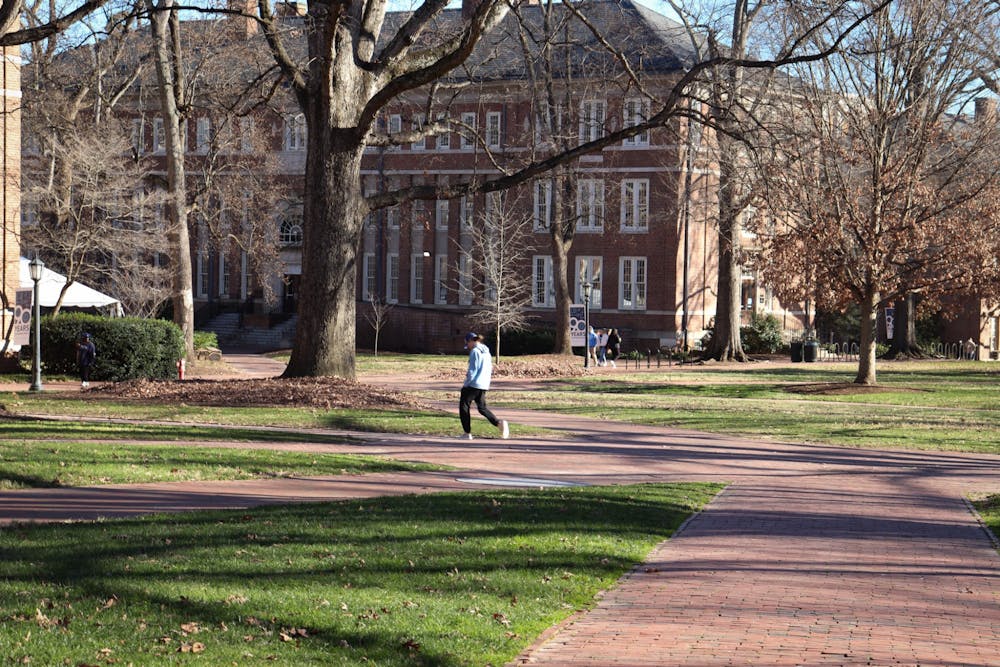Returning to campus amid the highly contagious omicron variant does little to tackle an unavoidable surge.
When I landed in Chapel Hill last week, I was taken aback by my Uber driver — who asked whether or not he could keep his mask on during our 25-minute ride from the airport. According to his logic, the new variant was “basically a cold,” and other passengers didn’t mind if he opted to not wear one, despite company policy. His ambivalence toward caution was unsettling, for both his well-being and mine.
Similarly, the University’s plan for the spring appears insufficient in addressing the surge of omicron variant cases engrossing the nation. Along with the frustration around remote learning for both students and instructors, the lukewarm policy delays the inevitable.
My visit to family in New York over the holidays was eclipsed by the intense rise of breakthrough infections that clobbered the city in record-breaking numbers. I myself was exposed to COVID-19 on my third day back, and, after testing positive, spent a half of the break quarantining in my childhood home. The other half was spent hearing about more positive cases from friends navigating isolation with a desire to see and spend time with their family.
As the omicron variant and positive cases swell nationwide, University administration had to determine the best course of action for the spring semester. Their conclusion, in consultation with health and academic officials, was to uphold the Jan. 10 start date, commit to in-person instruction and hand over the responsibility of making any concrete decision to school deans.
Over the course of the semester, quarantine protocol will reflect the recently abbreviated isolation period of five days. Instructors are thus expected to prepare for a variety of outcomes over the course of the semester, planning for student absences as well as their own, while remaining committed to teaching in person.
Other universities seem to be exploring alternative possibilities for the start of the semester. One solution has been to extend winter break. Not only does this stall the pace to which students congregate in the area, it gives universities time to watch state and nationwide COVID-19 trends. Syracuse University and Howard University will both start their semesters at the end of the month.
Another approach is a university-wide decision to begin with remote learning. Schools including Duke University, Georgetown University and American University have welcomed this approach.
UNC has chosen to do neither, subjecting not only students and instructors to the chaos of increased positive cases and impermanent modes of teaching and learning, but leaving the larger Chapel Hill community vulnerable to a spike.



